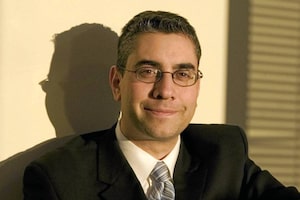Investors often turn to their advisers when they have money to spare, but should they?Feng Yu/Getty Images/iStockphoto
Ted Rechtshaffen is president and CEO of TriDelta Financial Partners, a firm that provides independent financial planning advice. He was vice-president of business strategy at a major Canadian brokerage firm and found that the interests of the client were often not aligned with the interests of the adviser or the interests of the company.
This is part three in a series that looks inside the financial services industry at what advisers tell their clients and - more importantly - what they don't.
A typical financial challenge for individuals comes down to the very basic question, "How should I spend an extra dollar?"
The best way to determine if a financial adviser is on your side is to ask for their advice on this fundamental question. To make it more interesting, it might be an extra $10,000. How they answer will tell you if they are the right adviser for you.
In my opinion, only a true financial planner can answer this question properly. Here is why: If your adviser is focused on investments, the answer will most likely relate to further investments in an RRSP, RESP, TFSA or regular investment account. This may in fact be an appropriate answer, but did they ask the right questions before coming up with this recommendation? Do they know about your non-investment priorities and obligations?
Unfortunately, it often comes down to what is best for them, and not for you. So is your financial adviser truly advising you?
Like most situations, the best answer requires some education. Most important are the questions an adviser asks before coming up with recommendations.
Does your investment adviser understand your debt situation? If not, how can they provide you with good advice on this question?
If you have debt with an interest rate of 6 per cent or more, then you should very likely be paying down that debt first. If your interest rate is more like 3 per cent or 4 per cent, then could you likely earn more than this return by investing elsewhere? Is your debt tax-deductible? Could it be structured to make it so? What is your philosophy toward carrying debt? These are all questions your adviser should consider.
|
More from Ted Rechtshaffen |
Here is a question your adviser may not have asked: How long has it been since you had a real vacation? It could be that you are overdue, and there is no urgent need for this money. If so, why not take a trip?
What about other obligations? Is there a house project or car repair that is overdue or a hole in your insurance coverage that is in need of those funds? Could one of your kids or parents or a charity really benefit from this money - and is that something that you are inclined to support?
As you can see, the right answer for you is really dependent on an understanding of your overall financial situation and also your personal goals. If you have a financial planner who has that overall picture and knows you well, then they might just have advice that is focused on your needs. It isn't a guarantee, but it is an important first step. These questions - and client knowledge - is certainly something core to a financial adviser's business.
So what to do with that extra money? Try asking your current investment adviser this question and see what advice they come up with. If it leads to an immediate discussion of which investment account to put the money in and which type of investment to buy, then you might want to start looking for a financial planner who knows your needs.
|
Other articles in Ted Rechtshaffen's Adviser Secrets series:
|
 Ted Rechtshaffen
Ted Rechtshaffen